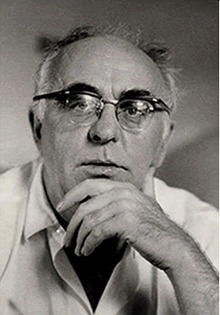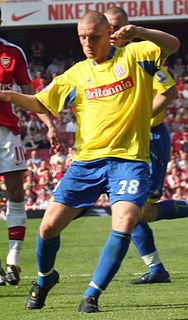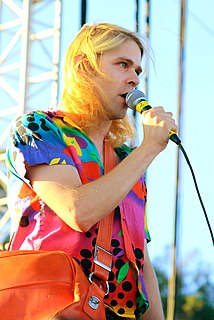A Quote by Charles Olson
The poem, for me, is simply the first sound realized in the modality of being.
Related Quotes
So I realized when I was successful in a piece, it was because I didn't abandon a notion early on what it ought to be, and I let it take me along. So I've had songs that started out as being about the environment and ended up being love songs and love songs that ended up being about the environment. I've had things that I thought would be a poem and realized that it was just too big for that. I've got to do something larger and it became a play. I wrote one poem that started a whole play.
The 'idea' for the poem, which may come as an image thrown against memory, as a sound of words that sets off a traveling of sound and meaning, as a curve of emotion (a form) plotted by certain crises of events or image or sound, or as a title which evokes a sense of inner relations; this is the first 'surfacing' of the poem. Then a period of stillness may follow.
Being established in my life, buttressed by my thinking nature, fastened down in this transcendental field which was opened for me by my first perception, and in which all absence is merely the obverse of a presence, all silence a modality of the being of sound, I enjoy a sort of ubiquity and theoretical eternity, I feel destined to move in a flow of endless life, neither the beginning nor the end of which I can experience in thought, since it is my living self who think of them, and since thus my life always precedes and survives itself.
When we sit in meditation and hear a sound, we think, 'Oh, that sound's bothering me.' If we see it like this, we suffer. But if we investigate a little deeper, we see that the sound is simply sound. If we understand like this, then there's nothing more to it. We leave it be. The sound is just sound, why should you go and grab it? You see that actually it was you who went out and disturbed the sound.
I am always interested in the ways of scoring the sound of the poem, especially a poem with long lines. Spaces within a line, double colons, slashes, are indications of pause, of breath, of urgency, they are not metrically exact as in a musical notation but they serve (I hope) to make the reader think about the sound of the poem - just as traffic symbols, when driving, make us almost unconsciously aware of a steep hill, an intersection, an icy bridge etc.
The subject of the poem usually dictates the rhythm or the rhyme and its form. Sometimes, when you finish the poem and you think the poem is finished, the poem says, "You're not finished with me yet," and you have to go back and revise, and you may have another poem altogether. It has its own life to live.
It seems to me that the desire to make art produces an ongoing experience of longing, a restlessness sometimes, but not inevitably, played out romantically, or sexually. Always there seems something ahead, the next poem or story, visible, at least, apprehensible, but unreachable. To perceive it at all is to be haunted by it; some sound, some tone, becomes a torment — the poem embodying that sound seems to exist somewhere already finished. It’s like a lighthouse, except that, as one swims towards it, it backs away.



































